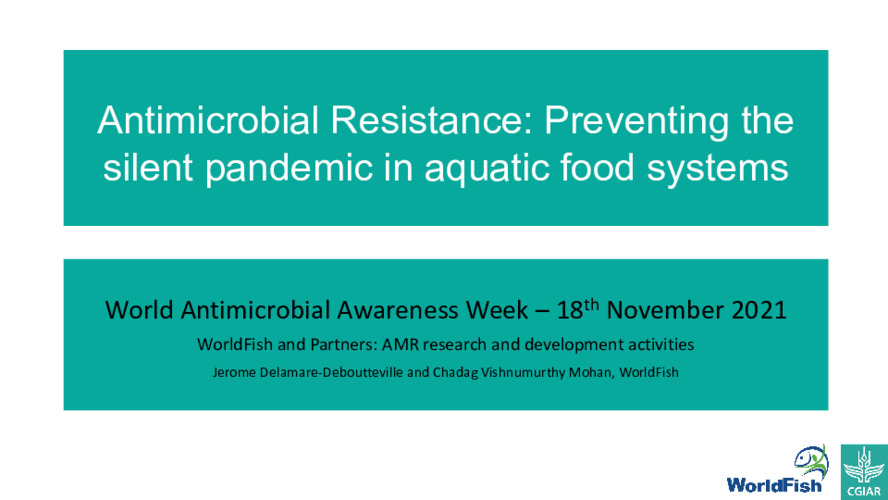Antimicrobial Resistance: Preventing the silent pandemic in aquatic food systems
Abstract
This presentation covers the AMR research and development activities conducted by WorldFish and partners over the last 5 years. Presentation was shared during the online CGIAR AMR Hub World Antimicrobial Awareness Week campaign event on 18th November 2021.
Background: Antimicrobials and antibiotics are the cornerstone of modern medicine and are necessary treatments for conditions ranging from certain skin infections to warding off secondary infections after major surgeries. Antimicrobial resistance (AMR) is a silent pandemic and a global threat to human development placing the sustainable development goals (SDGs 1,2, 3, 6 and 10) at risk if left unchecked. 
An estimated 700,000 people die each year from drug resistant infections and this number is expected to rise to 10 million by 2050. In another eight years, the World Bank estimates that if we don’t make progress on containing AMR, 24 million people will be pushed into extreme poverty where the world poorest people, most living in low and middle-income countries are disproportionately vulnerable. 
Institutions within the CGIAR are strategically placed to address the emergence and spread of AMR in low- and middle-income countries and in various systems such as livestock, aquaculture, water, and crops. Since the establishment of the CGIAR AMR Hub in 2019 and with the support of the CGIAR research programs on Agriculture for Nutrition and Health (A4NH) and Livestock, the International Livestock Research Institute (ILRI), World Fish, International Water Management Institute (IWMI), and International Food Policy Research Institute (IFPRI), and partners have been working together to address AMR in various sectors where data is limited or lacking.
This year the CGIAR AMR Hub would like to spread awareness and stop resistance within the CGIAR by engaging with One CGIAR and sharing lessons learned and identifying existing gaps that need to be addressed

